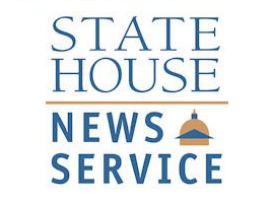Report: Relief Funds Minimized Hospital Losses in 2020

DATE: March 14, 2022
As Pandemic Took Hold, Prescription Costs Rose While Overall Health Care Spending Fell
.....A new state report provides a snapshot of the COVID-19 pandemic's early impacts on the health care system in Massachusetts, tracking an unusual year-over-year decline in spending and gauging impacts on hospital and nursing home financing.
The Center for Health Information and Analysis, a state agency created under a 2012 cost control law, released its annual report on Monday examining health care spending trends in 2020.
CHIA has reported annual increases in health care spending from 2013 through 2019 -- updated figures in Monday's report show 4.1 percent growth from 2018 to 2019. In 2020, however, health care expenditures decreased 2.4 percent to $62.6 billion or $8,912 per capita.
"The unprecedented disruption COVID-19 caused to the Commonwealth's health care system is evidenced by the reversal of many historical trends related to health care spending and utilization," CHIA Executive Director Ray Campbell said in a statement. "It is important to note that more current data CHIA and other state agencies have collected show a rebounding of health care utilization in 2021 and the report's findings should be interpreted within the specific context of a highly unusual year."
Overall hospital utilization declined in 2020, the report found, with both inpatient stays and emergency department visits down during the pandemic's peaks.
Many elective procedures and routine appointments were canceled early in the pandemic as people minimized trips outside the home and as a result of efforts by state government and health care leaders to preserve capacity to treat COVID-19 patients.
Hospitals and other entities in the care system received an infusion of federal relief funds -- CHIA found the statewide median total margin for acute hospitals in hospital fiscal year 2020 was 2.6 percent, down 0.9 percentage points from the prior year. However, the median total margin would have been -4.5 percent without the relief money, the agency said.
Nursing facilities, settings particularly hard hit by the pandemic, reported a total revenue of $4.64 billion in 2020, including the COVID-19 funding they received. Overall resident days at nursing facilities declined by 14 percent between 2019 and 2020, CHIA said.
Spending on hospital inpatient services, hospital outpatient services and physician services all decreased from 2019 to 2020, while rising for prescription drugs and non-claims payments to providers. The drops in physician and hospital outpatient spending were the largest drivers behind the overall decline in health care spending, CHIA said.
Pharmacy spending, after accounting for prescription drug rebates, grew 7.7 percent from 2019 to 2020, a larger increase than the previous year's 2.7 percent. The report said the faster pace of growth than the previous year is "likely due to policy changes at the state and federal level due to COVID-19, such as the implementation of 90-day drug supplies and increased use of telehealth."
Rebates reduced pharmacy spending by $2.5 billion in 2020, to $8.9 billion. Prescription drug rebates grew by 9.9 percent between 2019 and 2020, down from the previous year's 25 percent rate of growth.
The Massachusetts Association of Health Plans and consumer advocacy group Health Care for All both pointed to the growth in drug spending as a reason for policymakers to act.
"Prescription drug spending remains an enormous challenge for Massachusetts employers and consumers," Lora Pellegrini, president and CEO of the health insurers' association, said in a statement. "As premiums reflect the cost of care, it is critical to address rising drug prices which continue to exceed the state's cost growth benchmark."
Amy Rosenthal, Health Care for All's executive director, called the rise in prescription drug spending "an ongoing and deepening challenge that the state must confront."
A bill (S 2695) the Senate passed last month aims to impose new accountability and transparency measures around drug pricing. That bill is pending before the House Ways and Means Committee, which is chaired by Rep. Aaron Michlewitz, a Boston Democrat.
Rosenthal also called for policymakers to monitor the interplay between rising premiums and insurer profits.
"We are also concerned about how much money insurers kept from their financial gains due to the unexpected drop in the use of health care services during the pandemic," she said. "The amount of money insurers were paid in premiums but did not spend on medical care jumped by more than 35 percent, even after accounting for rebates and credits paid back to consumers."
Pellegrini, in her statement, said Massachusetts health plans issued nearly $60 million in premium rebate checks to individuals and employers in the state in 2021 after utilization of in-person services remained below actuarial predictions in 2020.
Katie Lannan, State House News Service, 3/14/22
